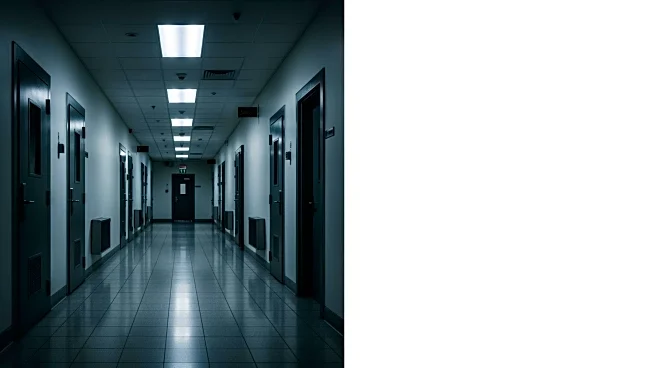What's Happening?
Timothy Mellon, a reclusive billionaire and significant financial supporter of President Trump, has been identified as the anonymous donor who contributed $130 million to the U.S. government. This donation was made to ensure that military personnel received
their pay during the ongoing government shutdown. President Trump announced the donation but did not initially disclose Mellon's identity, referring to him only as a 'patriot' and a 'friend.' The donation was accepted by the Pentagon under its general gift acceptance authority, although it may conflict with the Antideficiency Act, which restricts federal agencies from spending beyond congressional appropriations.
Why It's Important?
The donation highlights the financial strain caused by the government shutdown, which has resulted in approximately 670,000 federal workers being furloughed and 730,000 working without pay. Mellon's contribution underscores the challenges faced by the government in maintaining essential services and paying its employees during budgetary impasses. The act of a private citizen stepping in to fund government operations raises questions about the role of private wealth in public governance and the potential implications for democratic processes. It also reflects the significant influence of wealthy individuals in political and governmental affairs.
What's Next?
The government shutdown continues to impact federal operations, with no immediate resolution in sight. The legality of Mellon's donation under the Antideficiency Act may be scrutinized, potentially leading to legal or policy discussions about the acceptance of private funds for public salaries. The ongoing shutdown may prompt further executive actions or negotiations to resolve the budgetary deadlock. Stakeholders, including political leaders and federal employees, are likely to continue advocating for a resolution to restore normal government operations and ensure the financial stability of affected workers.
Beyond the Headlines
Mellon's donation raises ethical questions about the influence of private wealth in public affairs and the potential for such actions to set precedents for future government funding during crises. The situation also highlights the broader issue of political donations and the power dynamics between wealthy individuals and government entities. As the shutdown persists, the reliance on private donations could become a contentious topic in discussions about government accountability and transparency.















